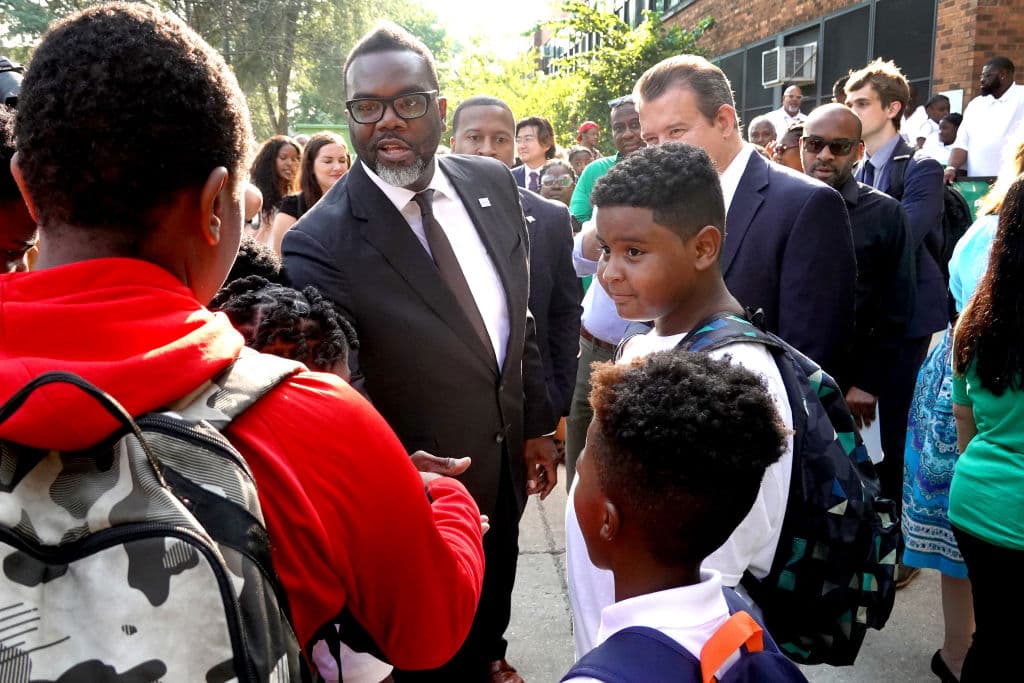Chicago Mayor Launches Reparations Task Force, Issues Formal Apology for City’s ‘Legacy of Inequity’
The announcement comes as one Chicago suburb, Evanston, is facing a federal lawsuit over its reparations program for violating the equal protection clause of the 14th Amendment.

Chicago is moving ahead with a reparations task force to study how slavery and discrimination have “harmed Black Chicagoans” — despite growing concerns over race-based programs in light of the Supreme Court’s decision banning affirmative action for violating the 14th Amendment’s equal protection clause.
“Today’s Executive Order is not just a public declaration; it is a pledge to shape the future of our city by confronting the legacy of inequity that has plagued Chicago for far too long,” Chicago’s mayor, Brandon Johnson, said, adding that his administration also seeks to move forward on “targeted investments aimed at rectifying decades of deliberate disinvestment in Black neighborhoods and communities.”
The announcement, made in the leadup to Juneteenth this Wednesday, comes as legal concerns are mounting over race-based programs or legislation in light of the Supreme Court’s ruling in 2023 in Students for Fair Admissions v. Harvard in which the court held that the university’s affirmative action program was unconstitutional and stating that “eliminating racial discrimination means eliminating all of it.”
Chicago’s task force announcement also comes as a Chicago suburb, Evanston, is facing a federal lawsuit over its reparations program on the grounds that it violates the equal protection clause of the 14th Amendment. The lawsuit argues that Evanston’s program to provide $25,000 in payments to Black people who lived in Evanston between 1919 and 1969, along with their descendants, is unconstitutional.
While Chicago’s announcement only launches a task force to issue recommendations, constitutional lawyers have told the Sun that they are ready to challenge any race-based reparations programs that are implemented across the country.
Mr. Johnson’s office this week also issued a formal apology “on behalf of the City of Chicago for the historical wrongs committed against Black Chicagoans and their ancestors who have and continue to bear injustices.”
“The legacy of slavery and its aftermath echoes, even today, and the executive order names the cumulative impact the legal institution of slavery, Jim Crow laws, and other discriminatory practices upheld by public and private institutions has had on Black Chicagoans, which include disparities in life expectancy, unemployment, homeownership rates, home value, incarceration, and more,” a statement read.
Illinois was admitted to the Union as a free state in 1818, but there was some limited slavery allowed and the state curtailed Black residents’ rights, according to the Illinois Historic Preservation Division. Chicago, located on Lake Michigan with easy access to Canada, became known as a “hotbed” of abolitionism and a key stop along the Underground Railroad.

